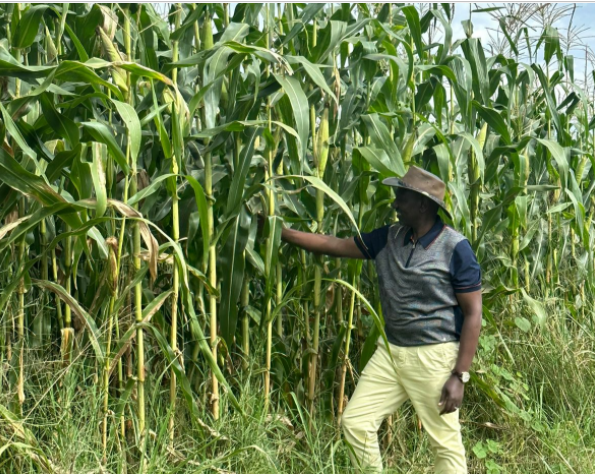President William Ruto is marking two years in office on Friday, during which his administration has made significant strides in the agricultural sector.
At the start of his tenure, Ruto highlighted that food accounts for 54% of household expenditure and vowed to focus on agricultural reforms to reduce the cost of living. His administration shifted its strategy from subsidizing consumption to subsidizing production and boosting agricultural productivity.
In a paid advert, the government outlined its strategies to achieve these goals: reducing the cost of farm inputs, increasing farmer incomes, creating more jobs in the agricultural sector, and improving productivity and value addition.
The government enhanced the fertilizer subsidy program, which included digital registration of farmers and making low-cost fertilizer available to them. This initiative aimed to boost food production, reduce consumer food costs, and create job opportunities in agriculture.
The advert noted a 514% increase in the number of fertilizer bags distributed to farmers and a 58% reduction in the cost per bag of fertilizer. This has led to a 38.9% increase in maize production and a 33.7% reduction in maize imports.
“Due to increased maize production, maize imports (50-kilogram bags) decreased by 10.8 million bags, from 32.04 million bags in 2022 to 21.24 million bags in 2023, resulting in a 33.7% reduction in imports,” the advert stated.
The government also reported an additional 24 million 50kg bags of maize, rising from 61.74 million in 2022 to 85.7 million in 2023, representing a 38.9% increase in maize production. This has contributed to a 23.3% decrease in the cost of two-kilogram maize flour.
“The subsidy program has reduced the shelf cost of flour by an average of Sh39.5, with the price of a two-kilogram packet of maize flour falling from Sh169.9 in 2022 to Sh130.38 in 2024, a 23.3% reduction,” the advert added.
Additionally, the government has worked to improve key agricultural value chains.
The government has taken several steps to support the agricultural sector and enhance value addition. It has eliminated VAT on tea purchased from local factories for value addition and has supported MSMEs by providing equipment for specialty tea production. As a result, smallholder farmer earnings have increased by 11.8%, rising from Sh59.02 billion in 2022 to Sh66 billion in 2024.
Additionally, the government has distributed 556 metric tonnes of sunflower seeds across 34 counties and invested in seed multiplication and coconut cultivation. This has led to an 8.3% increase in the acreage under sunflower farming, growing from 60,000 acres in 2022 to 64,980 acres in 2024.
Efforts to revitalize the leather industry include operationalizing the Kariokor Common Manufacturing Facility, completing the Central Effluent Treatment Plants at Kenanie Industrial Leather Park, and providing training and tools to industry players.
Livestock insurance coverage has expanded by 65.5%, from 304,211 in 2022 to 503,469 in 2024. These initiatives have resulted in a 30% increase in the utilization of processing capacity for skins, growing from 40% in 2022 to 70% in 2024.
The guaranteed minimum price for milk has been raised from Sh37 per litre in 2022 to Sh50 per litre in 2024, marking a 35% increase. Milk production has also grown by 13%, rising from 4.6 billion litres in 2022 to 5.2 billion litres in 2024. Furthermore, rice production has increased by 19%, from 192,299 metric tonnes in 2023 to 229,064 metric tonnes in 2024.



